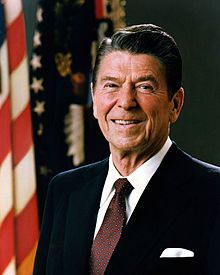The Iowa House and Senate voted this morning to accept the first redistricting plan proposed by the Legislative Services Agency. Click here to view maps of the redrawn Congressional and state legislative districts.
The Senate vote was 48 to 1, with Republican Sandy Greiner the only dissenter. Greiner would not face re-election in 2012 under the plan, but her new district contains more of Johnson County, and for that reason would have a Democratic voter registration advantage. Republican State Senator James Hahn had previously said he would vote no on this plan; perhaps he and fellow Republican Shawn Hamerlinck have figured out what to do now that they are in the same Senate district.
John Deeth explains here which senators would face the voters in 2012 and how some potential contests between two incumbents might shake out. I would add that Pat Ward is not guaranteed an uncontested GOP primary in the new 22nd district, containing Waukee, Windsor Heights, Clive and a lot of West Des Moines. Other people, including former radio talk show host Steve Deace, may be interested in that safe GOP seat.
In the Iowa House, 91 representatives voted for the plan, including all Democrats present and most of the Republican caucus. Seven House Republicans voted no. Clel Baudler’s House seat was and remains solidly Republican; maybe he just doesn’t like the idea of being in the new third Congressional district (a swing district).
Mark Brandenburg and Mary Ann Hanusa were two more no votes; the plan puts them into the same Council Bluffs House seat, leaving Democrats a possible pickup in the empty district containing the rest of Council Bluffs.
Annette Sweeney was another no vote; she’s risen to the position of House Agriculture Committee chair but now will be thrown into a district with Pat Grassley. He didn’t vote against the plan, so maybe Sweeney feels she will get the short end of the stick there.
Two members of the House Republican leadership team voted against the map. One was Assistant Majority Leader Renee Schulte, and I’m not surprised. She won her Cedar Rapids district by only 13 votes in 2008, and the new map gives Democrats a larger registration advantage there. UPDATE: Schulte said she opposed splitting the Iowa City/Cedar Rapids corridor into two Congressional districts.
House Speaker Pro Tem Jeff Kaufmann was the other member of the Republican leadership team to vote no today. Deeth notes that his new district leans Democratic, losing part of Muscatine County while gaining more of Johnson County. UPDATE: Kaufmann wrote to Deeth:
It would have been nice for you to ask me about my NO vote. It had nothing to do with my new House seat. My seat has always been Democratic-leaning and was actually almost 1200 plus Democrats a few years ago. In fact since it is rural Johnson County it is only about a 500 vote difference than my current district even after the 2010 election. Actually a new map could have been much worse for me in party registration […].
My NO vote had to do with the new Senate District and my constituents, both Democratic and Republican, wanting uniformity in their Senate District instead of a rural county attached to an urban area. My NO vote reflected the desire to have a conversation about uniformity within Senate Districts, something I have talked about for years.
Governor Terry Branstad now has three days to sign or veto the redistricting bill. He has promised a careful review but also indicated that he hasn’t heard “a compelling reason to reject it.” For that matter, neither has anyone else. Yesterday The Iowa Republican blog publisher Craig Robinson suggested that the maps aren’t good for Republicans long-term and said he’d like to see what was behind door number 2. Perhaps Robinson is trying to encourage Branstad to veto the plan, or he could just be spinning.
After today’s votes in the legislature, Representative Dave Loebsack confirmed that he will move from Linn County, which would be part of the first Congressional district, into the new second district, covering most of southeast Iowa.
UPDATE: Statements from Loebsack, Iowa GOP Chairman Matt Strawn and Iowa Democratic Party Chair Sue Dvorsky are after the jump.
Tom Latham’s press secretary told the Sioux City Journal’s Bret Hayworth that “the congressman will have no statement on the redistricting plan and what it means for him, since it’s still not official, pending action by the governor.”
SECOND UPDATE: Added Bruce Braley’s statement below.
THIRD UPDATE: Added Leonard Boswell’s statement. James Q. Lynch talked to several of the Republicans who voted no. Excerpts from their comments are below.
Continue Reading...


